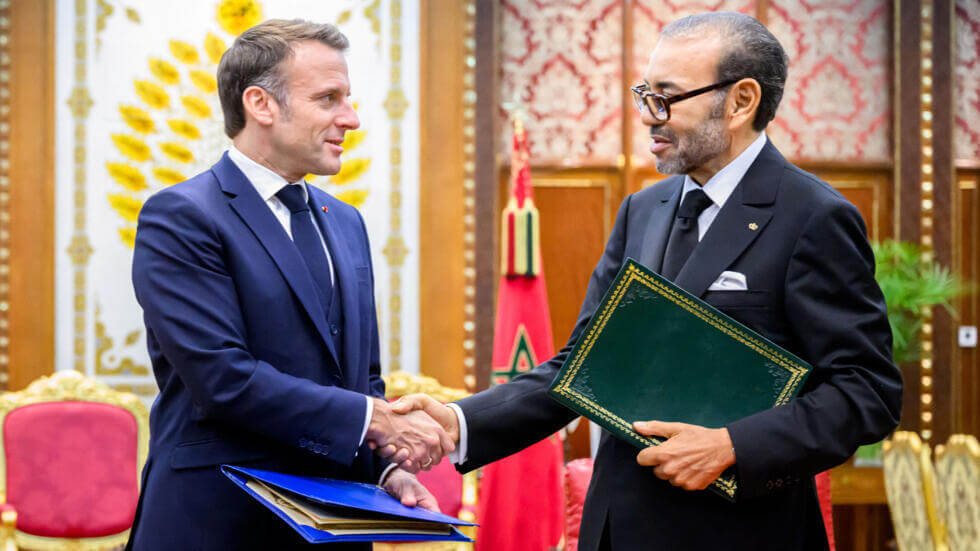|
LISTEN TO THIS THE AFRICANA VOICE ARTICLE NOW
Getting your Trinity Audio player ready...
|
French President Emmanuel Macron Tuesday declared France’s support for Moroccan sovereignty over Western Sahara, sparking both enthusiasm and anger across North Africa. Macron’s endorsement, in a pivotal address to Morocco’s parliament, aligns France with several Western allies backing Morocco’s autonomy plan for the contested region, a territory that has remained a flashpoint of regional tension for nearly half a century.
Western Sahara, located on the north-western coast of Africa, was once a Spanish colony before being annexed by Morocco in 1975. Since then, control of the region has been split: Morocco governs most of the territory, while the Algerian-backed Polisario Front controls parts, advocating for independence and asserting the region’s right to self-determination on behalf of the indigenous Sahrawi people. In recent years, the dispute has become emblematic of broader regional rivalries, primarily between Morocco and Algeria, which severed diplomatic ties with Morocco in 2021 amid rising tensions.
Macron’s comments in Rabat echoed sentiments he initially expressed in July, signaling a notable shift from France’s historically neutral stance. He praised Morocco’s proposed autonomy plan, describing it as the “only basis” for a just and enduring political solution. “For France, this territory’s present and future fall under Morocco’s sovereignty,” Macron told the assembly, triggering a standing ovation from lawmakers.
France’s move aligns it with nations such as the United States, Spain, and Israel, which also support Morocco’s plan to grant Western Sahara limited self-rule under Moroccan oversight. But the decision has drawn sharp rebuke from Algeria, a long-standing supporter of the Sahrawi cause, which regards Morocco’s control over Western Sahara as an illegal occupation. Following the announcement, Algeria promptly withdrew its ambassador to Paris, pointing out the frayed relations between France and Algeria – a nation with its own colonial past under French rule.
In his speech, Macron also touched upon France’s complex history with Morocco and Algeria, acknowledging the darker aspects of colonialism but stopping short of issuing a formal apology. “Our shared history includes moments of conquest, coercion, and unequal treaties, when European powers imposed their will upon others,” he said. “Even under the guise of a protectorate, Morocco was not immune to colonial ambitions and their consequences.”
For Morocco, France’s backing marks a diplomatic win, adding further legitimacy to its sovereignty claims over Western Sahara. In response, Morocco and France have reportedly entered agreements on energy, infrastructure, and other sectors, estimated to be worth around €10 billion. Macron also pledged increased French investment in Western Sahara, promising initiatives aimed at local development.
While Morocco celebrated France’s stance as a significant diplomatic shift, the Polisario Front lambasted the move, denouncing it as an endorsement of “violent and illegal occupation.” For decades, the Polisario Front has argued that Morocco’s hold over the territory violates international law, demanding that the Sahrawi people be granted their long-promised UN referendum on independence. The truce brokered by the United Nations in 1991 included a referendum agreement, yet disputes over voter eligibility have obstructed any resolution, leaving the territory in a prolonged political stalemate.











LEAVE A COMMENT
You must be logged in to post a comment.